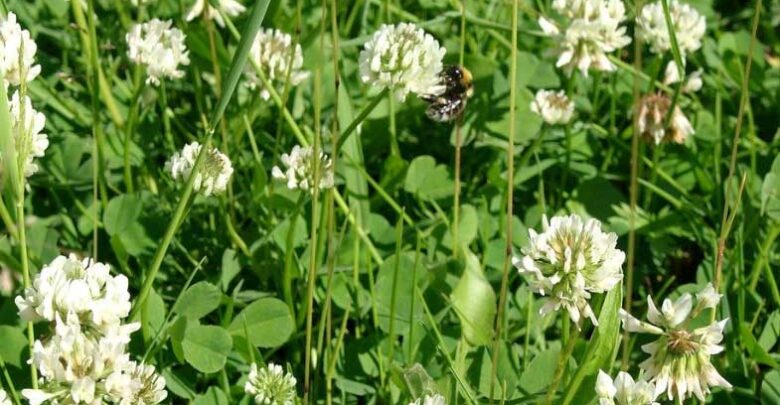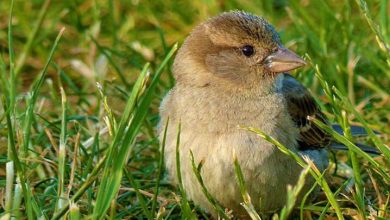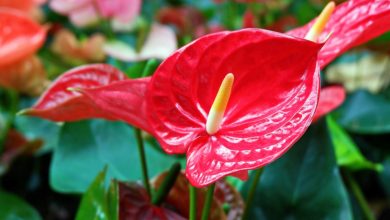How To Get Rid of Clover: Without Destroying Your Lawn

You have a good-looking lawn, but you have noticed recently that that wonderful green area is interrupted by the sprouting clover clumps. You tried mowing, but these weeds keep coming back and getting bees with them. Trefoil or clover is a common weed found on badly maintained and undernourished gardens.
What Is Clover?
If your backyard is covered in shamrock-shaped, 3-leaved plants, they are possibly white clover, Trifolium repens is the scientific name of it,
the most common in North America. Such short-stalked clovers produce slightly pink or white flowers. As an aside, 4-leafed clovers are a little mutated variety of Trifolium repens, and they crop up at the rate of about one out of every five thousand stalks. Even less common are 5- and 6-leafed ones, but they’re possible to locate.
The Trifolium pratense or red clover is also somewhat common.
Such weeds have longer oblong leaves and cultivate to be much larger than the white ones, fabricating a rose-pink flower on a trail that can grow to more than 2 feet in length.
The red one is less likely to take over the garden because it can grow vertically in place of spreading across your ground, but it can also act as the weed. Both clover types can really be useful to the garden’s soil.
Such plants take nitrogen from the air and put it back into your soil, decreasing the requirement of fertilizing the lawn.
Moreover, it can be a good source of protein for your livestock, so it is, at times, grown on purpose for grazing purposes. However, when it comes to the garden, the grass and plants may not derive benefit from the competition for resources and water that it brings. Several house owners just do not like how it appears and prefer to keep the gardens free of them.
If the clover does not bother you, there is no requirement of taking action, since it is not damaging to pets or humans. However, if you desire it gone, there are many ways of getting rid of them naturally.
Why Is Clover Growing In My Garden?
You may locate clover in the garden for several reasons, all of which need to do with the quality of your soil.
- The Soil is Stressed:
Stress can take many forms when it comes to the soil; one such thing is the over-fertilization, and the other one is the over-irrigation.
Too much water can sluice the nitrogen out of your dirt, so overwatering or heavy rainfall can lower the soil quality, inviting clover patches to move in. It is significant to keep in mind that the quality of soil can differ throughout a garden.
If you’ve got sprinklers that overlap the patterns as they dole out water, such spots of overwatering can make the correct conditions for the nitrogen-poor soil that can really grow clover.
- The Soil Lacks Different Nutrients:
A lot of plants require nitrogen for growing, but clover can grow in the soil with less nitrogen because it can get what it requires from the air.
Other grasses and plants are not so fortunate, so they may give way to the clover patches. The great news is that it’ll replace the nitrogen of soil, but it possibly won’t carry it out as attractively and fast as you would want.
The low soil nitrogen can be an outcome of environmental elements such as cold weather, but the overuse of quick-acting synthetic fertilizers can reason it.
Although they make rapid blooms of grass, such fertilizers can lower the soil quality in the long run. Switch to the organic or slow-release fertilizers for preventing this issue in the future.
- The Soil is Compacted:
Your soil can emerge to stand up to the heavy traffic, but the inner structure of it can become compacted with time, squeezing out many nutrients and stopping the roots from taking hold. Clover can grow in the conditions that the other plants can’t, so clover might be a sign that a particular soil patch is overworked or too compact.
It can be fixed with the regular aeration or inclusion of air into your soil. Aeration can be accomplished using spikes, but the more comprehensive way is to dig up the soil plugs and allow them to recombine with the dirt naturally. It’s called core or plug aeration, and you can either rent the appropriate gear or employ experts for aerating the garden.
- The pH of the Soil is Wrong:
It’s a measurement of how alkaline or acidic a substance really is. The perfect pH for soil is about 6.5, meaning it is a little acidic; for comparison, water has a seven neutral pH.
However, if your soil becomes excessively acidic, more delicate grasses and plants might be incapable of growing. Clover, however, can endure the soil pH of as low as six, so it may be growing because it is one of the things that really can. Balancing the acidity out is frequently a matter of applying minerals such as lime to your soil.
Most expert garden care services have the gear to both test your soil acidity and apply several additives for fixing it.
Clover Can Be Of Use For The Garden:
Believe it or not, clover is actually of use for the grass, and you may contemplate keeping it in the garden. Here’s the reason why:
Clover Can Prevent Other Weeds:
If you mow the garden high, you’ll prevent the weeds occurrence because tall grass can really make shades that do not favor the growth of the weeds. However, if you choose to mow the grass on an ideal 6cm (2.5 inches), you’ll have an issue. Therefore, clover is the best solution! Its umbrella-like leaves can shade your ground and disable the growth of other weeds.
Clover Will Fertilize The Garden:
Thanks to the symbiotic relationship with the helpful bacteria attached to the roots of clover, this weed is a useful plant that can enrich your soil in the garden.
Well, such bacteria can absorb nitrogen from the air and do not have to make use of this nutrient from your ground. If you make an exceptional clover mixture, you’ll drastically decrease the requirement of the garden for the extra fertilization.
That denotes that this weed will assist the grass in growing vigorous and green without making use of any chemicals. Just place this weed throughout the garden or append it into your composter.
How Can You Get Rid Of Clover In Your Lawn?
If you cannot stand clover in the garden or you’re frightened that different insects which clover might attract will harm your kids, you can get rid of this weed. It would not be a simple job, but you can do well if you are persistent and patient.
- Mow High:
Each time you cut the grass under 7.6cm (three inches), you’ll make perfect conditions for the clover growth. Otherwise, if you mow your garden high, you’ll encourage the growth of the grass and provide it a huge benefit over clover. It’s a pretty easy method of getting rid of this weed.
- Remove Clover By Hand:
At times you need to get to the root of the issue you have to get rid of it. Pulling out weeds can be the fastest solution for bringing the garden back to beautiful greenery.
The instant you see clover growing, get on the knees and hands and get rid of it by gently loosening your soil around it to get all of its roots.
Obviously, it’s not the most well-liked of the control ways because it engages the most labor, but if you acquire to the clover early, before it blooms and starts to spread, you can take out the small areas of clover using your hands. Clover does spread through the seed and has stems that can creep and spread roots along your ground, so it’s very important to pull clover earlier rather than waiting until the complete infestation.
- Fertilize The Lawn:
Remember that clover prefers the soil that is under-fertilized, and the lawn that is pretty rich in nutrients isn’t a place of preference for such weeds. Therefore, fertilize the lawn with a brilliant organic fertilizer or with the content of the compost tumbler in the late fall and early spring. Like this, you’ll encourage the grass growth and repress clover.
- Cover It with Plastic Sheeting
This technique is more often than not only practical for the isolated clover patches, but it just needs a little dark plastic trash bags.
Cut that bag for fitting the patch(s), cover them entirely, and make use of rocks for weighting down these plastic pieces. It might take quite a few weeks for killing the clover, and keep in mind that any plant you deprive of oxygen and sunlight will likely die, so do not cover up your grass.
However, this method has the advantages of being both low-effort and low-tech.




